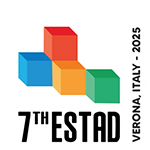Speaker
Description
In the pursuit of decarbonization, the steel industry is increasingly adopting Electric Arc Furnaces (EAFs) due to their lower carbon footprint and operational flexibility. EAFs can efficiently utilize diverse raw materials, such as scrap steel, pig iron, and Direct Reduced Iron (DRI), to adapt to fluctuating market conditions, resource availability, and product quality requirements.
As the share of EAFs in steel production grows and scrap availability will not cover the higher demand, the industry must address the dual challenge of production increase, maintaining this operational flexibility while ensuring the production of high-quality steel. Adapting the raw material charge mix without compromising on quality is critical, particularly as market demands evolve towards higher-grade steels with precise chemical compositions and reduced impurity levels.
The DRI quality can have a significant effect on EAF performances and is pivotal in meeting the right product quality, particularly in controlling nitrogen and residual elements like copper, tin, molybdenum, and nickel. Understanding the impact of raw material characteristics on EAF operations is crucial for optimizing the charge mix to achieve targeted steel quality at a minimal cost.
This study is focused on the EAF's capability to produce stringent grades. Advanced metallurgical models and operational experience are used to assess the impact of DRI ratio and quality on EAF performance, including energy consumption and product quality. Furthermore, some SMS group developments are presented, allowing to enhance EAF performances and optimize mixed scrap/DRI operation. The study concludes with a techno-economic analysis of CO2 emissions and operational expenditure (OPEX) impacts across various EAF scenarios.
